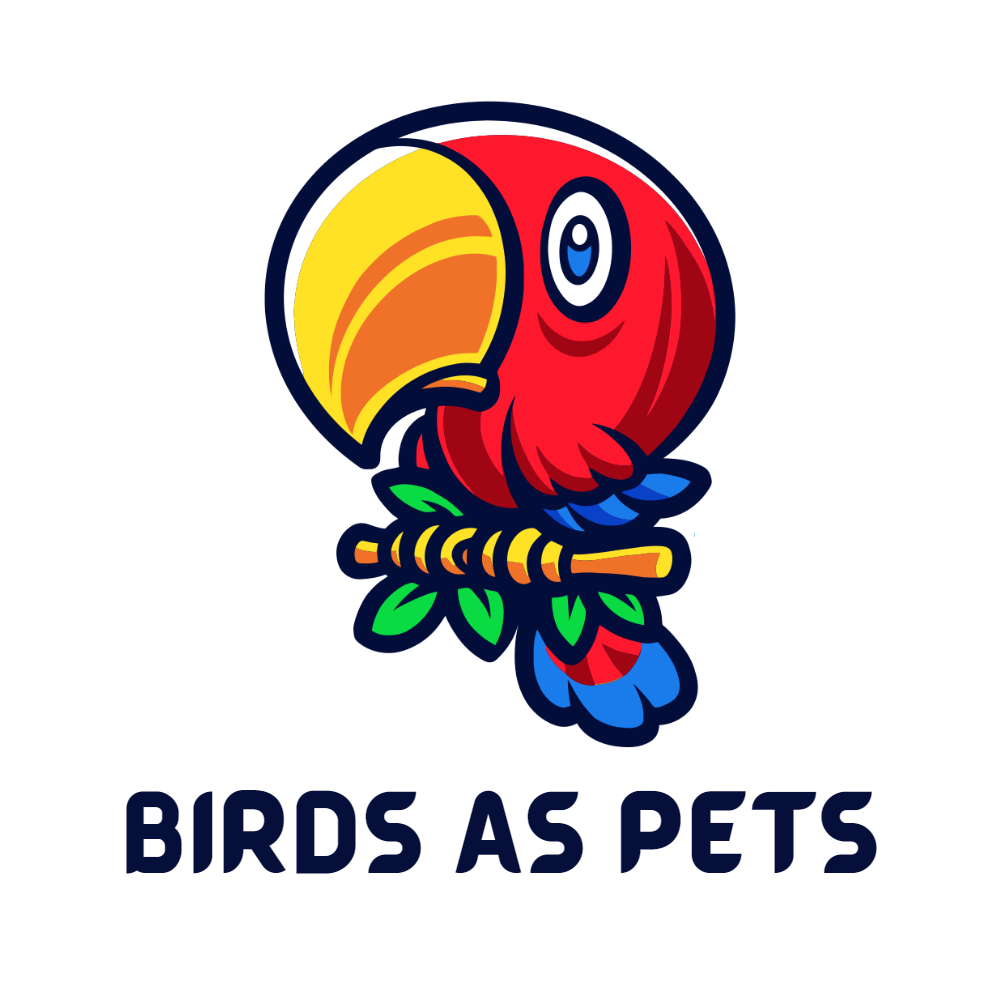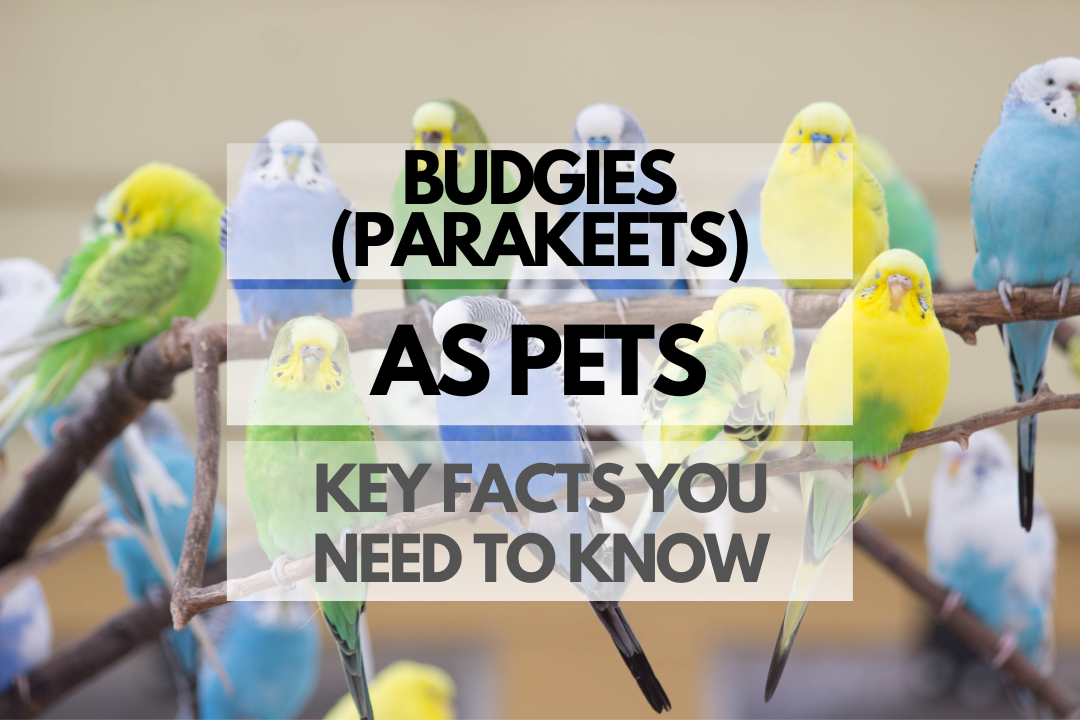Budgies, also known as parakeets, are small, colorful birds that make delightful pets. They’re known for their intelligence, sociability, and playful nature. In this article, we’ll explore everything you need to know about keeping budgies as pets, including their lifespan, care requirements, and more.
Quick Reference Table: Budgie (Parakeet) Facts
| Fact | Description |
|---|---|
| Size | 6-8 inches (15-20 cm) in length |
| Weight | 0.9-1.4 ounces (25-40 grams) |
| Average Lifespan | 5-10 years in captivity |
| Temperament | Social, intelligent, and playful |
| Talking Ability | Good; can learn to mimic words and phrases |
Where Do Wild Budgies (Parakeets) Live?
Wild budgies are native to Australia, where they inhabit grasslands, woodlands, and scrublands. They are social birds that live in large flocks, called “murmurations,” and are known for their striking colors and agile flight.
Budgie (Parakeet) Lifespan: How Long Do They Live as Pets?
In captivity, budgies have an average lifespan of 5-10 years. However, with proper care, they can live up to 15 years or more. A long and healthy life for your budgie requires a balanced diet, a clean and safe environment, and regular veterinary check-ups. Keeping a budgie as a pet also requires a time commitment for daily interaction and mental stimulation.
Are Budgies (Parakeets) Good Pets?
Budgies make excellent pets for individuals and families. They are friendly, entertaining, and bond well with their human caretakers. With proper care and attention, budgies can become affectionate companions that brighten up any home with their colorful plumage and lively personalities.
Are Budgies (Parakeets) as Pets Good for Beginners?
Yes, budgies are a great choice for beginners who are new to bird keeping. They are relatively low-maintenance, small in size, and have a friendly disposition. Additionally, they are more affordable than many other parrot species, making them an excellent option for those starting their journey in bird care.
Are Budgies (Parakeets) Easy to Care For?
Budgies are generally easy to care for, but they do require some maintenance. This includes providing a clean and spacious cage, a healthy diet, and plenty of mental stimulation through toys and interaction. Regular health check-ups with an avian veterinarian are also essential to ensure your budgie remains in good health.
Budgie (Parakeet) Pros and Cons
| Pros | Cons |
|---|---|
| Intelligent and playful | Can be noisy at times |
| Good talkers | Require daily interaction and attention |
| Relatively low-maintenance | Can be messy with seeds and feathers |
| Affordable | Shorter lifespan compared to larger parrots |
Budgie (Parakeet) Price and Costs
The price of a budgie can range from $10 to $60, depending on factors such as age, color, and source. In addition to the initial cost of the bird, you’ll need to invest in a spacious cage, toys, food, and other accessories. Ongoing expenses include food, veterinary care, and replacement toys.
Where to Buy Budgies (Parakeets)
You can find budgies at pet stores, bird specialty shops, and through reputable breeders. It’s essential to research and choose a reliable source to ensure the health and well-being of your new pet. You may also consider adopting a budgie from a rescue organization or shelter.
Caring for Budgies (Parakeets)
Budgie (Parakeet) Food
A balanced diet is crucial for your budgie’s health. Offer a mix of high-quality seed or pellet mix, fresh vegetables, and occasional fruit. Calcium-rich foods such as cuttlebones or mineral blocks should also be provided. Avoid feeding your budgie toxic foods, such as avocado, chocolate, and caffeine.
Health and Common Issues
Budgies are prone to some common health issues, including respiratory infections, tumors, and egg-binding in females. Regular veterinary check-ups and a keen eye for any changes in behavior or appearance can help you catch and address health issues early.
Signs of Healthy Budgie (Parakeet) vs. a Sick One
| Healthy Budgie | Sick Budgie |
|---|---|
| Alert and active | Lethargic or listless |
| Smooth, well-groomed feathers | Ruffled, unkempt feathers |
| Clear, bright eyes | Cloudy, swollen, or half-closed eyes |
| Clean, dry vent area | Soiled, wet, or inflamed vent area |
| Normal droppings | Diarrhea, discolored, or abnormal droppings |
| Steady weight | Weight loss or gain |
Budgie (Parakeet) Pet Insurance
While pet insurance is more commonly associated with dogs and cats, some insurance providers offer coverage for exotic pets, including budgies. Pet insurance can help cover the cost of veterinary care, including treatments for accidents, illnesses, and routine check-ups. It’s a good idea to research and compare various pet insurance plans to find one that best suits your needs and budget.
Personality and Behavior
Budgies are known for their playful, curious, and social nature. They enjoy exploring their surroundings, playing with toys, and interacting with their human caretakers. With proper socialization, budgies can become quite affectionate and enjoy spending time with their human companions. They are also intelligent birds, capable of learning tricks and even mimicking human speech.
Are Budgies (Parakeets) Social?
Yes, budgies are highly social creatures that thrive on interaction with other birds and their human caretakers. In the wild, budgies live in large flocks and form strong social bonds. As pets, they benefit from regular interaction with their human family and, if possible, the companionship of another budgie or bird of a similar size.
Speech and Noise of Budgies (Parakeets)
Budgies are known for their ability to mimic human speech and can learn to say words and phrases with proper training. They also have a natural repertoire of chirps, tweets, and whistles. While they are not as loud as larger parrots, they can be quite vocal, especially during the morning and evening hours.
Similar Species to Budgies (Parakeets)
There are several species of small parrots that share similarities with budgies, including:
- Cockatiels
- Lovebirds
- Parrotlets
- Lineolated Parakeets
- Bourke’s Parrots
Each of these species has its own unique characteristics and care requirements, so it’s essential to research them thoroughly before deciding on the best fit for your household.
Can Budgies (Parakeets) Live With Other Pets and Birds?
While budgies can often coexist peacefully with other birds of a similar size, they should not be housed with larger parrots, as they may become targets for aggression. It’s also essential to monitor interactions between budgies and other household pets, such as cats and dogs, to ensure everyone’s safety. Always supervise playtime and never leave your budgie alone with other animals.
Are Budgies (Parakeets) Legal to Have as Pets?
In most countries, including the United States, it is legal to keep budgies as pets. However, local laws and regulations may vary, so it’s essential to check with your local government or wildlife authorities to ensure that keeping budgies is permitted in your area.
Additional Resources
- Budgies: A Complete Pet Owner’s Manual by Julie Rach Mancini
- r/budgies – Reddit community for budgie enthusiasts
- Budgie/Parakeet Community – Facebook Group for budgie lovers
- American Veterinary Medical Association (AVMA) – Avian and Exotic Pet Care
FAQ for Budgies (Parakeets) as Pets
Do Budgies (Parakeets) talk?
Yes, budgies are capable of mimicking human speech and can learn to say words and phrases with proper training and repetition. However, not all budgies will develop this skill, and individual birds may vary in their talking ability.
Are Budgies (Parakeets) suitable for families with young kids?
Budgies can be great pets for families with children, as they are generally friendly and gentle. However, young kids should always be supervised when interacting with budgies to ensure the safety of both thechild and the bird. It’s also important to teach children how to handle and interact with budgies properly to avoid causing stress or injury.
Can Budgies (Parakeets) be trained?
Yes, budgies are intelligent birds that can be trained to perform various tricks and behaviors, including stepping up on your finger, targeting, and even learning to talk. Training your budgie using positive reinforcement methods, such as clicker training, can be a fun and rewarding way to strengthen your bond and provide mental stimulation.
How do I know what gender Budgies (Parakeets) are?
Sexing budgies can be done by examining the color of their cere (the fleshy area above the beak that surrounds the nostrils). In mature birds, males typically have a bright blue cere, while females have a brown, beige, or white cere. However, in young budgies, the cere color may not be fully developed, making it more difficult to determine their gender.
What is the average lifespan of a Budgie (Parakeet)?
With proper care, budgies can live an average of 5 to 10 years, although some individuals may live even longer. Providing a balanced diet, clean and spacious living environment, and regular veterinary care can help ensure your budgie lives a long and healthy life.
What is the best diet for Budgies (Parakeets)?
A balanced diet is essential for your budgie’s health. High-quality seed mixtures, pellets, and a variety of fresh fruits and vegetables should be offered daily. It’s also important to provide clean, fresh water and avoid feeding your budgie foods that are high in fat or sugar, as well as those that are toxic to birds.

